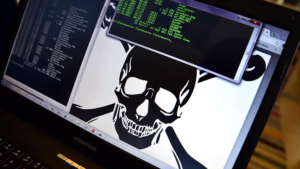Bungie’s decisive legal action against the developers and distributors of cheating software for Destiny 2 signals a significant escalation in the company’s efforts to protect its game and community. By invoking allegations of copyright infringement, DMCA violations, and civil RICO violations, among others, Bungie aims to hold accountable those responsible for creating and profiting from cheating tools like Ring-1.
The lawsuit’s inclusion of up to 50 individuals involved in various aspects of developing, marketing, and selling cheating software underscores the breadth of Bungie’s legal strategy. By targeting not only the developers but also individuals involved in customer support and marketing, Bungie aims to disrupt the entire ecosystem supporting cheating in Destiny 2.

Bungie’s assertive language, declaring an end to the days of cheaters operating with impunity, reflects the company’s determination to protect the integrity of its game and the experience of its player base. By pursuing legal action, Bungie sends a clear message that cheating will not be tolerated and that those responsible will face serious consequences.
The outcome of this lawsuit will be closely watched within the gaming industry, as it could set a precedent for how developers combat cheating in online games. If successful, Bungie’s legal action may deter other cheating software developers and send a strong signal that cheating undermines the integrity of gaming communities and will be met with swift and decisive enforcement measures.
Bungie’s latest legal action against the developers and distributors of cheating software for Destiny 2 demonstrates the company’s continued commitment to combating cheating within its game. By targeting individuals known by their online aliases and seeking to hold them accountable for their involvement in creating, marketing, and selling cheating tools, Bungie is sending a clear message that it will not tolerate cheating in Destiny 2.
The lawsuit builds upon previous legal efforts by Bungie against the cheat maker and distributor Ring-1, which began in 2021. Despite setbacks, such as the rejection of a requested judgment in February 2023, Bungie remains undeterred in its pursuit of justice. With settlements reached with some defendants and others still in litigation, Bungie’s determination to “finish the job” suggests a willingness to adapt its legal tactics and pursue multiple avenues to address cheating in Destiny 2.
The inclusion of additional defendants under the designation “JOHN DOES NO. 11-50” indicates Bungie’s intention to expand its legal action beyond the initial named individuals. This strategy reflects the company’s recognition that combating cheating requires targeting not only developers and distributors of cheating software but also those who provide support and facilitate its use.
Overall, Bungie’s ongoing legal battle against cheating in Destiny 2 underscores the company’s commitment to maintaining the integrity of its game and fostering a fair and enjoyable gaming experience for all players. As the lawsuit progresses, its outcome will likely have significant implications for how developers address cheating in online games and the broader gaming community.
”The days of Destiny 2 cheaters being free to engage in a wholesale assault on the Destiny 2 game and its community without fear of consequences are over”
(Bungie statement in new Ring-1 lawsuit)
Bungie’s complaint against the defendants behind Ring-1 cheating software is grounded in a firm legal foundation, leveraging federal and state laws, contractual breaches, and tort liability. The company asserts that the sale and use of cheat software violate various legal statutes, including copyright law and the DMCA’s anti-circumvention provisions. Additionally, Bungie alleges that the organized nature of the defendants’ activities constitutes RICO violations, a new aspect introduced in this lawsuit compared to previous legal actions.
Highlighting the extensive media coverage of Bungie’s previous legal victories, the complaint argues that the defendants were well aware of the illegality of their conduct yet chose to continue their activities. Despite being put on notice, the defendants persisted, demonstrating a willful disregard for the consequences of their actions. Bungie emphasizes the dangers posed by Ring-1 cheats, particularly their exploitation of the hypervisor layer of users’ operating systems, which puts both their own and others’ computers at risk.
The lawsuit names lead defendant Joshua Fisher, a resident of the UK and the proprietor of the payment processing company Paydash. While Fisher’s involvement in Paydash and its alleged role as a middleman reseller for Ring-1 cheats is detailed in the complaint, the company’s assertion that Paydash processed Ring-1 payments is not corroborated by public records related to the company’s liquidation. Additionally, the complaint highlights poor decision-making by other defendants, indicating a comprehensive approach to holding all responsible parties accountable for their actions.

Bungie’s legal action against the defendants behind Ring-1 cheating software targets individuals across different locations and roles associated with the development, marketing, and support of the cheating tools. Defendant Jacob W. Mahuron, known as “PragmaticTax” on Ring-1 forums, resides in Delaware, while Matthew Abbott (“Nova”) is alleged to live in West Virginia. David Hastings (“J3STER”) has managed to conceal his physical location.
Despite using Discord, which may provide additional evidence, the defendants’ unique IDs have been noted by Bungie, suggesting potential cooperation from Discord in the case.
Other defendants include Travers Rutten (“Travers7134”), a reseller in Brisbane, Australia, and Jesse Watson (“jessewatson3944”), whose location is unknown but who is linked to the “Softaim Express” Discord server. Additional individuals identified as “Calc,” “Cypher,” and “Khaleesi” are associated with different roles within Ring-1.
The lawsuit outlines a range of allegations against the defendants, including copyright infringement, Civil RICO violations (such as wire fraud, criminal copyright infringement, and money laundering), DMCA violations, Computer Fraud and Abuse Act violations, breach of contract, interference with contractual relations, and civil conspiracy. Bungie asserts that these actions have harmed the company financially, damaged its reputation, and incurred significant expenses related to anti-cheating measures. As a result, Bungie seeks damages to be determined at trial.






